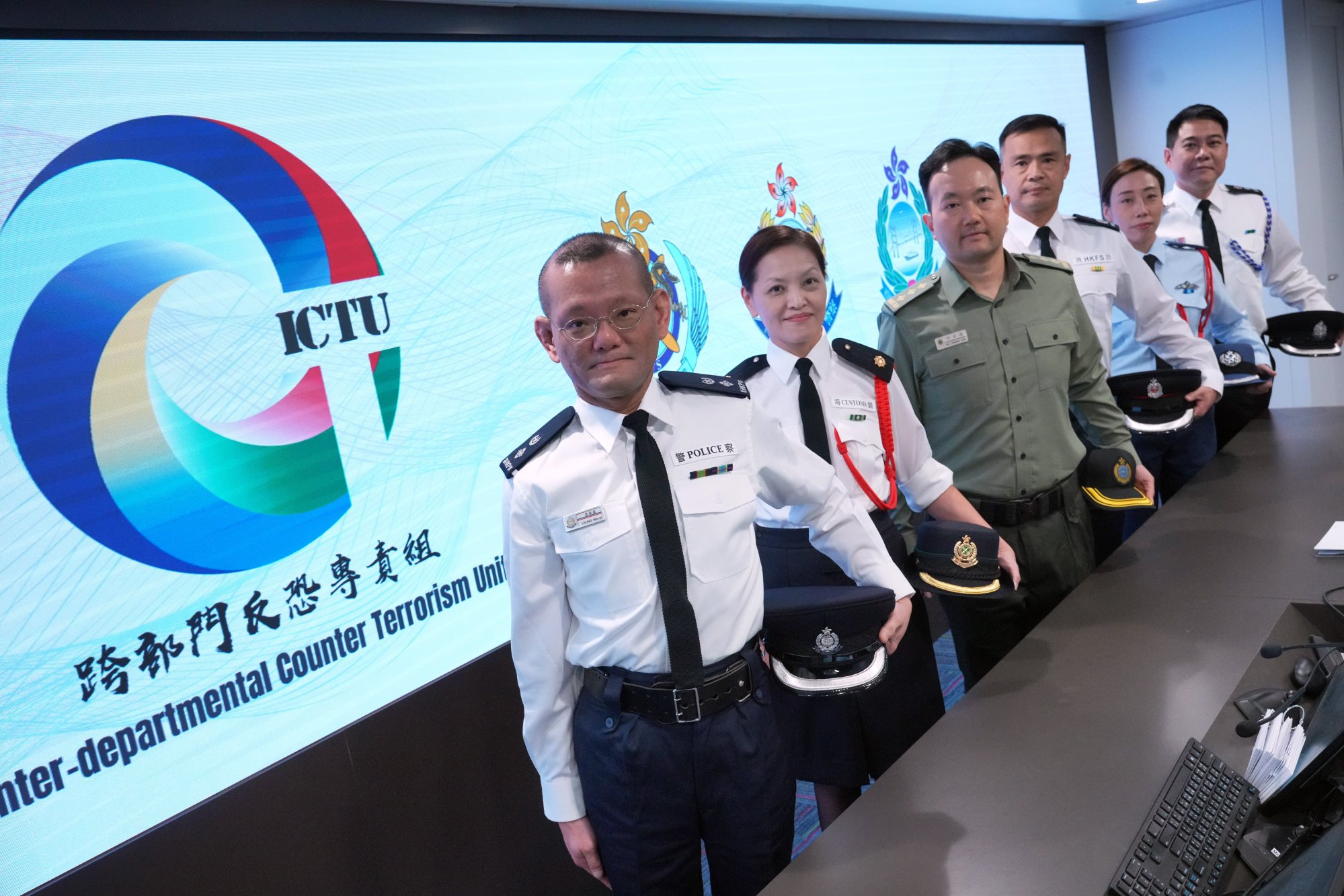Hong Kong will step up its counterterrorism efforts under a new mechanism led by the chief executive, with seven working groups involving various government departments set to be established.
Police Senior Superintendent Peter Leung Wai-ki of the Interdepartmental Counterterrorism Unit said efforts to combat and prevent terrorism needed strengthening.
“While local terrorism remains a threat, Hong Kong, as an international city, is also affected by international terrorist activities and geopolitics,” he said.
Do you have questions about the biggest topics and trends from around the world? Get the answers with SCMP Knowledge, our new platform of curated content with explainers, FAQs, analyses and infographics brought to you by our award-winning team.
“Therefore, there’s a need to boost our overall counterterrorism work, especially in prevention.”
Chief Executive John Lee Ka-chiu will lead a steering group under the three-tier mechanism first announced in the policy address in October. Secretary for Security Chris Tang Ping-keung will head a coordinating group in the second tier to facilitate cooperation among the various departments beyond the disciplined services.
The groups, to be led by the disciplined services, will cover intelligence, public education, information security, critical infrastructure, import and export of goods, immigration control and legislation.
While the risk of a terrorist attack in Hong Kong remained moderate, “lone wolf” attacks presented a new challenge to anti-terrorism efforts because they were not only limited to politically motivated people, but also those holding extreme social views, such as “incels”, Leung said.
Incels, short for “involuntarily celibates”, are an online group of people, usually men, who express misogynistic thoughts and identify themselves as unable to find romantic or sexual partners.

The Interdepartmental Counterterrorism Unit, which combines the city’s six disciplined services, was set up in April 2018.
The group comprised 43 officers from police, customs, the Immigration Department, the correctional services, the fire services and the Government Flying Service in 2018.
In his policy address this year, the city leader said the unit would increase the number of drills and step up public education on counterterrorism awareness.
“In the future, we hope to further expand our intelligence network under the three-tier prevention mechanism, bolstering our professional capabilities in investigating intelligence and cases,” Leung said.
He also said all three levels of government bodies under the framework would begin meetings next year.
The working groups are expected to meet once every six months, the same as the Security Bureau group under the framework, while the highest-level policymaking body under the city leader would convene once a year.
Ho Chung-yee, chief officer of counterterrorism of the Correctional Services Department, said prison authorities would focus on intelligence to prevent terrorist activities from growing within correctional institutions and raising officers’ awareness about terrorism groups and their strategies.
Ho listed talks on global terrorism trends, drills of explosive discovery inside prisons and quizzes as ways to improve correctional officers’ awareness of terrorist activities.
“Since those in custody have the chance to be in contact with external information from visits, letters and books sent to them, we will teach colleagues how to identify propaganda for terrorism,” Ho said.
Leung said on Monday that the force’s counterterrorism hotline had received around 35,000 messages since its launch in June 2022, with 13 per cent of the tipoffs resulting in referrals to relevant departments for investigation.
More from South China Morning Post:
- Hong Kong police install 504 CCTVs over 8 months, with possible use for counterterrorism
- Facial recognition coming to CCTVs at Hong Kong’s party hub Lan Kwai Fong: police chief
For the latest news from the South China Morning Post download our mobile app. Copyright 2024.





